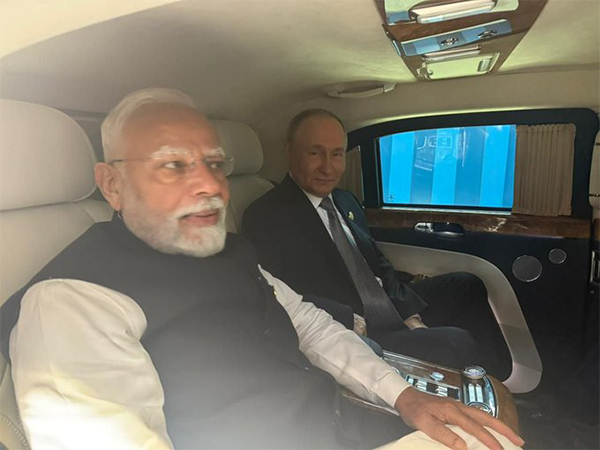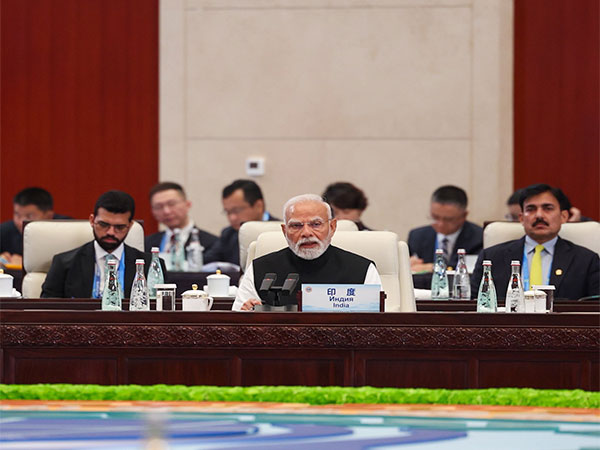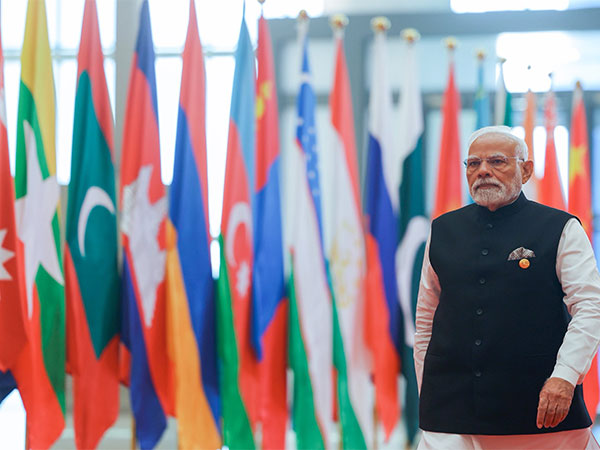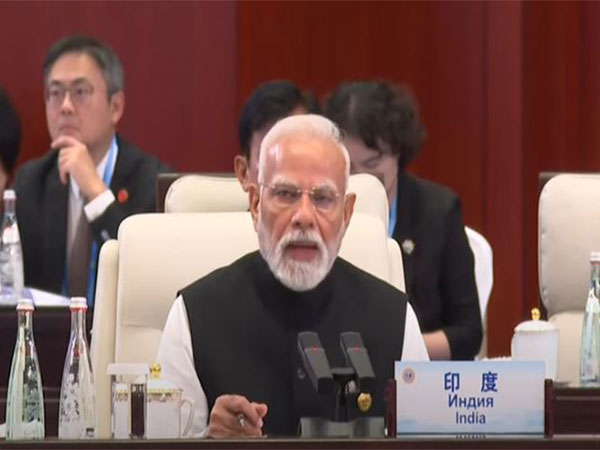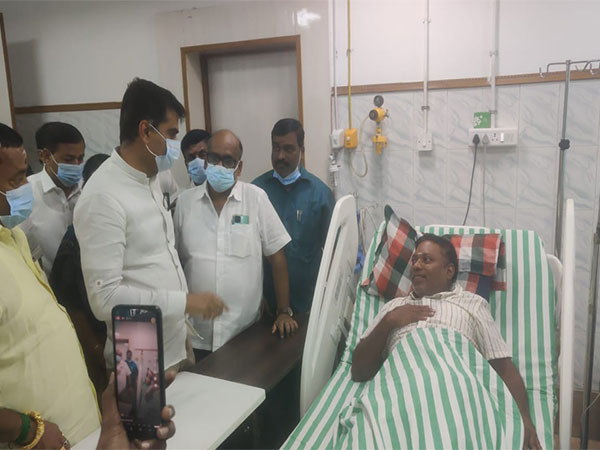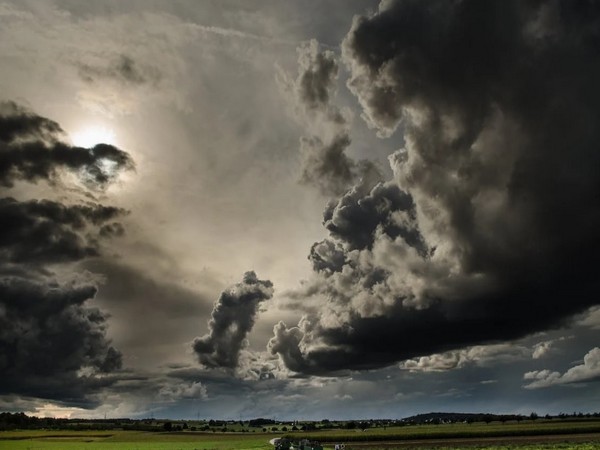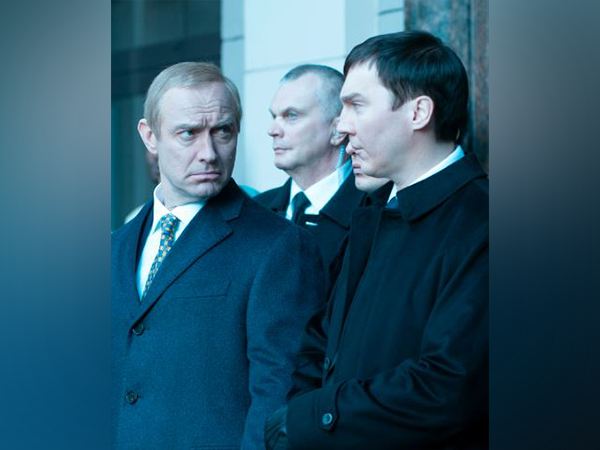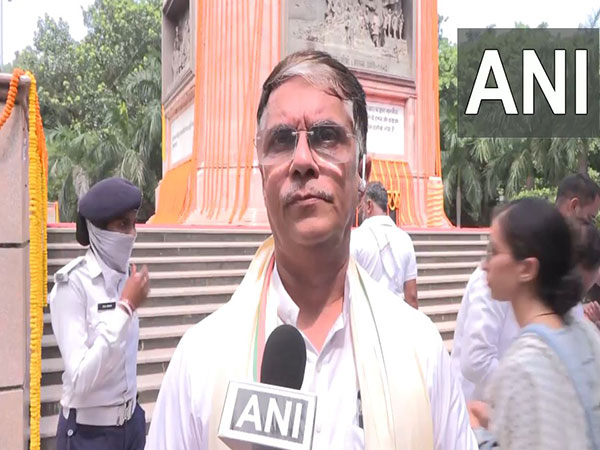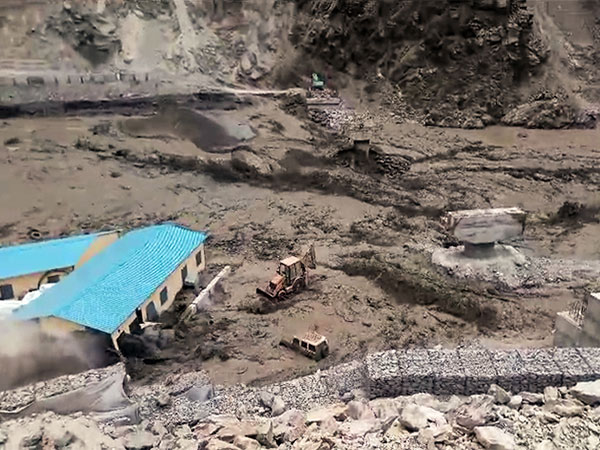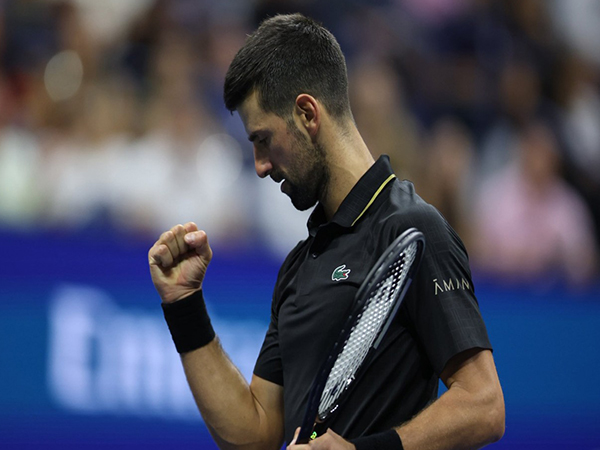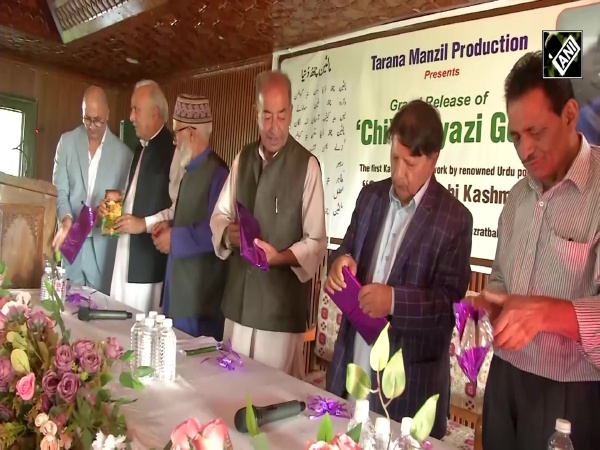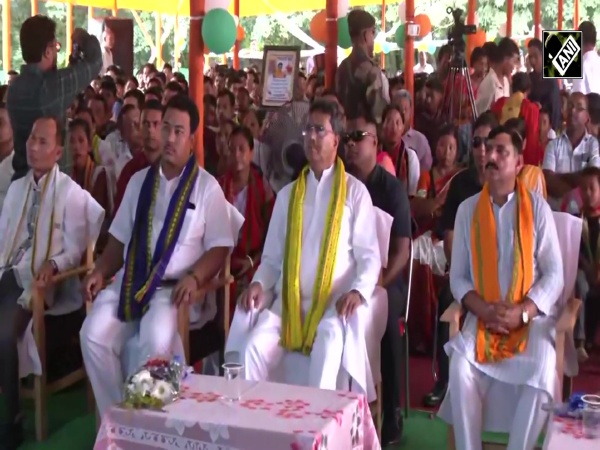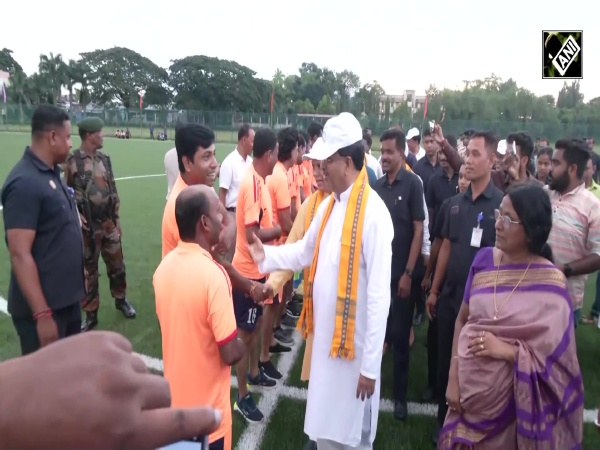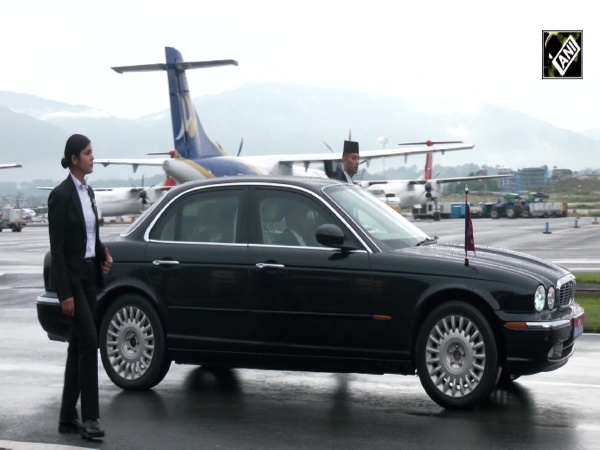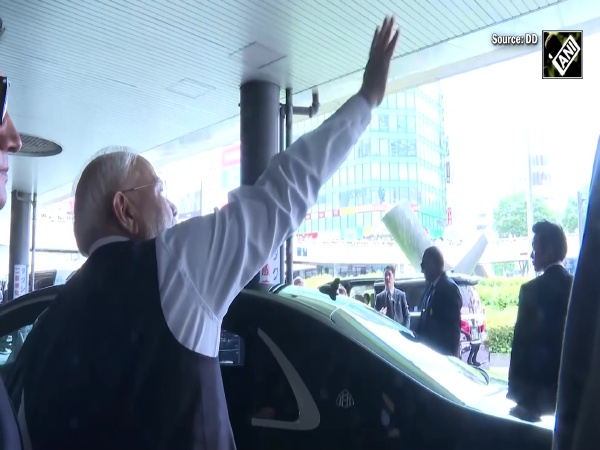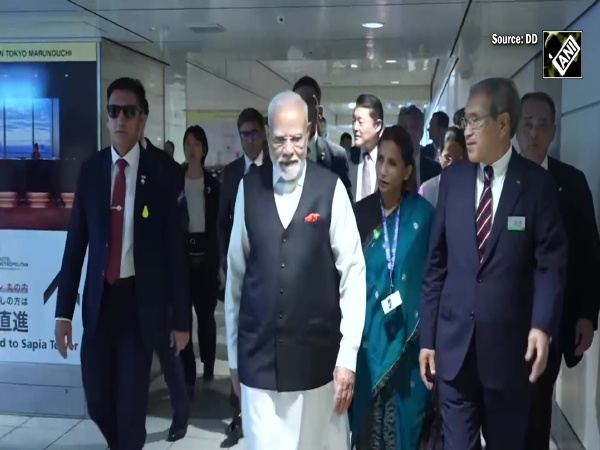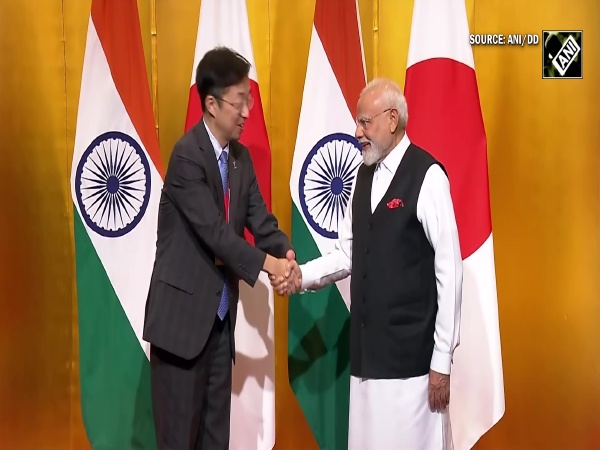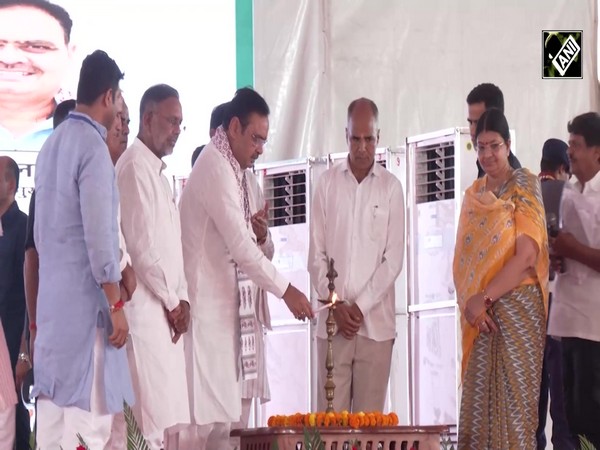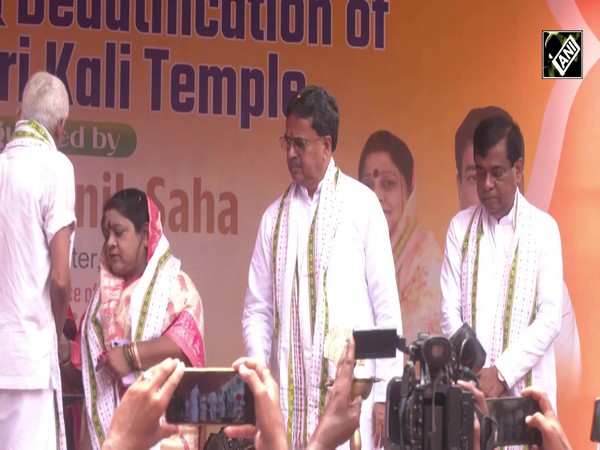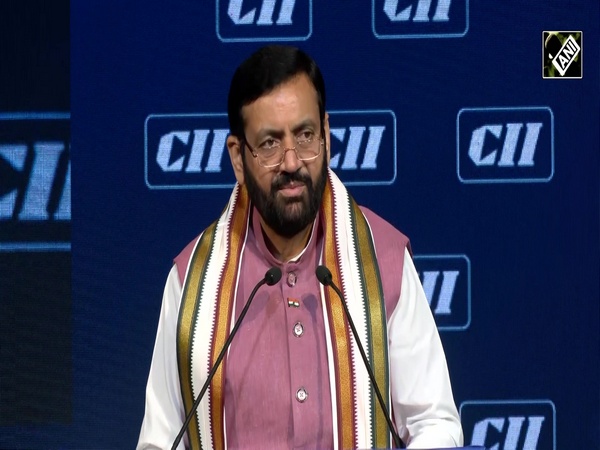Pak Foreign Minister Bilawal Bhutto Zardari's cousin targeted for being queer, videos circulating to "expose" him
Feb 17, 2023

Islamabad [Pakistan], February 17 : The cousin of Pakistan Foreign Minister Bilawal Bhutto Zardari, Zulfikar Ali Bhutto, has been targeted for being a queer Muslim man.
"There are some trans/homophobic videos circulating as of late trying to "expose" me for who I truly am. Just to be clear I have never hid who I truly am and neither should any of you," tweeted Zulfikar Ali Bhutto.
Based in Karachi and belonging to one of Pakistan's most powerful political families, Zulfikar Ali Bhutto is an artist and activist whose work resurrects complex histories in South and South West Asia and North Africa, thereby unpacking the intersection of religion, storytelling, futurity and environmental degradation.
Zulfikar Ali Bhutto is queer. Most would confuse him with the other Zulfikar Ali Bhutto, who was a former Pakistan President and Prime Minister in the early 1970s.
To clear out the confusion, Bhutto is a visual and performance artist. But, what has made him more popular is that he is the grandson of former Pakistan leader Zulfikar Ali Bhutto.
Defending her brother, Pakistani journalist and novelist Fatima Bhutto who was born into the political dynasty, tweeted, "Any attempt to attack my brother, I take as an attack on me. But beyond that, this is the 21st century. We live in a cruel world and anyone who aspires to live a life of truth, kindness and integrity has my respect, support and love."
Earlier in 2018, a short film was made on him, as part of "The Turmeric Project," a series highlighting LGBTQ (Lesbian, Gay, Bisexual, Transgender and Queer) South Asians who are living in the US.
The film opens with the voice of a man mockingly narrating a fictional encounter, in which he is asked to leave a plane for "speaking Arabic."
The words "Queer Muslim Proud" appear on the screen, followed by an introduction to the subject, in neon letters. Bhutto appears in a silky dress, dancing to the 1980s hit, "Disco Deewane," sung by the Pakistani pop singer Nazia Hassan. He shimmies and sways, a pink scarf pinned to his hair, and light-blue eye shadow reaching up to his eyebrows, The New York Times reported.
Much of his work, explores the intersection of Islam, sexuality and masculinity.
But the reason viewers across the world clamoured about the video, and why it continues to stir controversy, was because Bhutto shares his name with his grandfather Zulfikar Ali Bhutto. After leading the country in the 1970s, the elder Bhutto was deposed in a military coup by the then Pakistan chief of army staff General Zia-ul-Haq and was subsequently executed in 1979.
Three of his children went into politics, of which his daughter Benazir Bhutto became Pakistan Prime Minister in the 1990s before she was assassinated in 2007.
The younger Bhutto was just six years old when his father, Murtaza, was killed in a chaotic gunfight with the police outside his home in Karachi. The exact circumstances of his death remain mysterious.
Although Bhutto added that his family did not pressure him to enter politics, he is considered by many Pakistanis to be the successor to the family's turbulent dynasty.
"Bhutto Jr steps into the art world raises hopes," a headline in Dawn, one of Pakistan's leading English-language newspapers, said. In a Facebook comment, one user pleaded to Bhutto, "You are doing a nice job but please take the lead party of your grandpapa, we all are missing you."
In Pakistan, same-sex sexual acts are prohibited by law and there are no anti-discrimination laws to protect LGBTQ citizens. Although the Senate recently approved amendments to a bill that allows transgenders to choose their gender without needing to appear before a medical board, they are still at a huge risk.
News reports of expulsion, legal threats and attacks against gay Pakistanis, or against those perceived to be gay, are not uncommon.
For example, in one highly publicised case, a Pakistani transgender activist died from gunshot wounds after delays in medical care.
Many conservative people who watched the video allegedly used homophobic and derogatory comments on social media to condemn him and his art. "There was so much negativity when it came out, and the focus was on the drag part of it," Bhutto said.
